Joel Salatin and Polyface Farm
This post may contain affiliate links. Please read my disclosure policy.
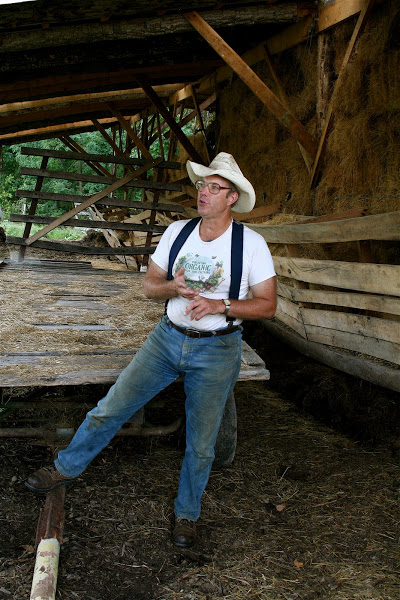
In the picture above, Joel Salatin stands in the open-sided shelter where his cows spends a portion of the winter. During the winter, the cows eat hay (dried grass accumulated throughout the growing season), and live on a bedding consisting of woodchips, sawdust and old hay to absorb the cows’ excrement. When the heavy cows tread on their nitrogen-rich manure and on the carbon-rich bedding, packing it together, they allow the mixture to ferment (anaerobic composting). By adding corn to the bedding, Salatin entices his pigs to turn the bedding into compost: When the cows return to pasture in March, the pigs dig through the densely packed bedding, searching for the tasty fermented corn, aerating the pile and turning it into compost for the spring.
Here, in this barn, Salatin says Pollan realized how Polyface contrasts so sharply with conventional farms.
Salatin considers himself a grass farmer: a farmer who relies on the free energy of the sun to grow grass and in turn feed animals, ultimately enabling all parties involved — animal, land and man — to prosper. For example, through controlled grazing, Salatin allows his ruminants to spread and fertilize grass seed, creating a healthier and more productive land, which in turn produces healthier and more productive cows, and in the end provides him with more meat.
But at Polyface, that’s just the beginning. With inventions such as the Eggmobile, Gobbledygo, and Raken house, everything is connected. The grass, after grazed by the cows and sanitized by the chickens, will grow back thicker and healthier. The grass doesn’t need fertilizer to grow because the cows spread and fertilize the seed with their manure; the cows don’t need grain — a food their ruminant stomachs can’t digest without the help of antibiotics — because they have grass; the laying hens require little purchased feed, because they dine not only on grass, but also on fly larvae and insects in the cow’s manure; the land doesn’t need pesticides to protect against pathogens because the hens thoroughly sanitize any land the cows have grazed; and the land furthermore doesn’t need artificial fertilizers because the hens fertilize it with their nitrogen-rich manure.
By relying on the sun, Salatin needs little oil and purchased food to grow his healthy, tasty, pastured meats — not only a wise business move, but also a boon to the environment.
After reading Pollan’s The Omnivore’s Dilemma in March, Ben and I have been dying to visit Polyface. To say the least, the weekend was memorable. Many of the highlights below:
Ben loves the pigs, and the pigs love Ben:
Ben and I stand with Joel in the barn where Michael Pollan had his epiphany about Polyface Farm. This open-sided shelter is where his cows spends a portion of the winter. During the winter, the cows eat hay (dried grass accumulated throughout the growing season), and live on a bedding consisting of woodchips, sawdust and old hay to absorb the cows’ excrement. When the heavy cows tread on their nitrogen-rich manure and on the carbon-rich bedding, packing it together, they allow the mixture to ferment (anaerobic composting). By adding corn to the bedding, Salatin entices his pigs to turn the bedding into compost: When the cows return to pasture in March, the pigs dig through the densely packed bedding, searching for the tasty fermented corn, aerating the pile and turning it into compost for the spring.
Pigs on Polyface Farm are “finished” in the forest. They spend their final weeks feasting on high-protein nuts and tree bark. This diet purportedly gives their meat great flavor as well as makes their fat healthier — Salatin calls this meat “olive oil pork.”
Rabbits and chickens coexist in the “Raken House.” Rabbits live in cages suspended from the ceiling. Chickens roam around on the ground below, scratching the bedding, performing “sanitation” duties.
Salatin, surrounded by his laying hens, explains the cow-chicken symbiosis on his farm. Salatin refers to his laying hens as his “sanitation crew.”
Meat birds live on grass under floorless pens. Every morning Joel Salatin drags the pen to a fresh patch of grass. Each patch of grass rests 364 days before a group of chickens feeds on it again. In these structures, moreover, the broilers get air, exercise and sunshine.
The eggmobile houses laying hens. It follows the herd of cattle, arriving to grass they’ve grazed on four days earlier.The hens peck at the four-day-old cow pies, eating various insects, larvae and parasites – rich sources of protein – and accomplishing a whole lot more along the way: By eating the fly larvae and parasites, they rid the land of potential pathogens and disease; by scratching through the droppings and spreading them across the grass, they enable the manure to sink into the ground and fertilize the soil; and by eating the pesky insects, they reduce the presence of one of the cows’ biggest irritants.
The group of people we toured with for three hours walk with Joel towards the barn:
This post may contain affiliate links. Please read my disclosure policy.

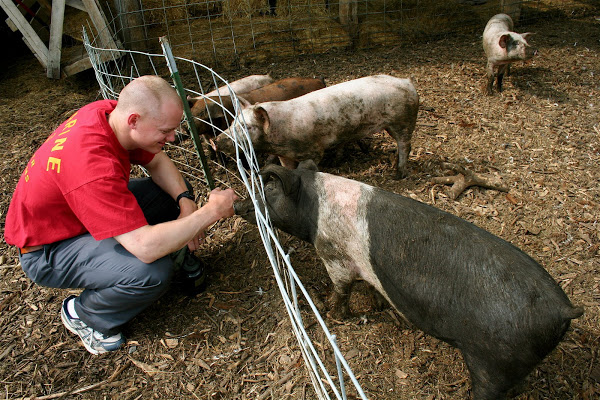
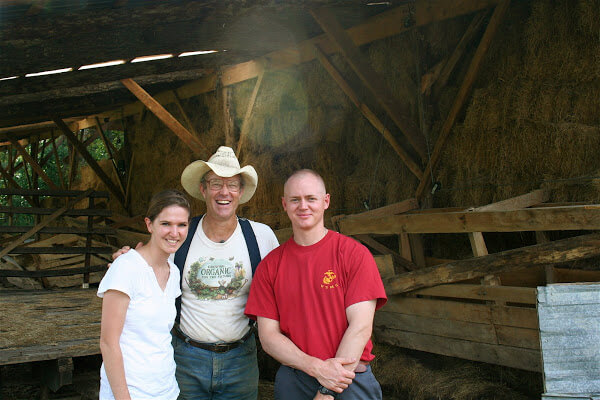

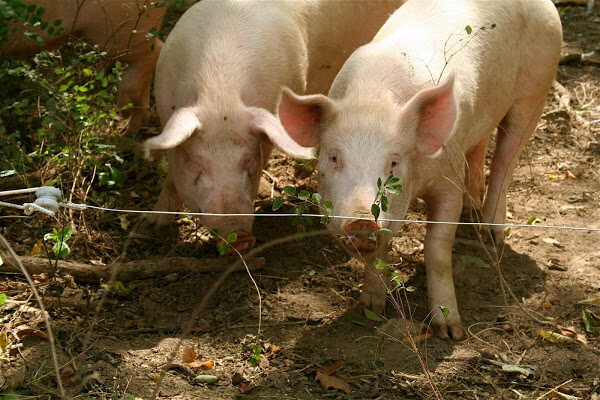

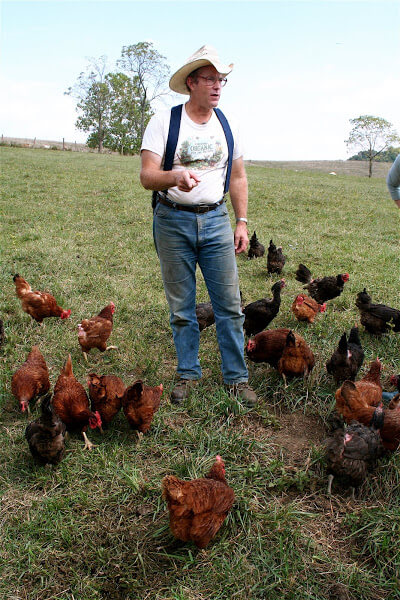
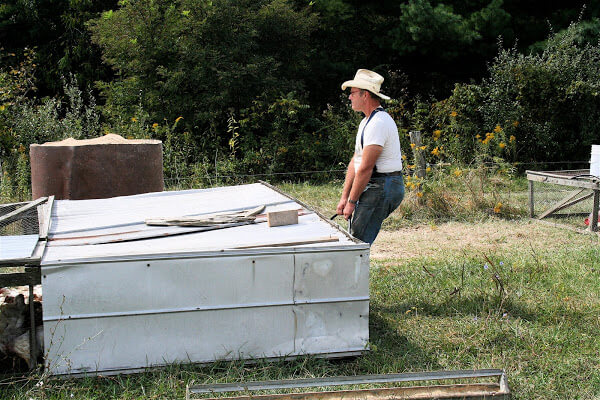
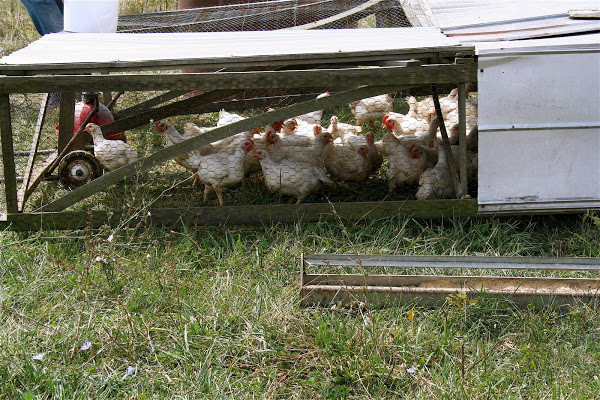
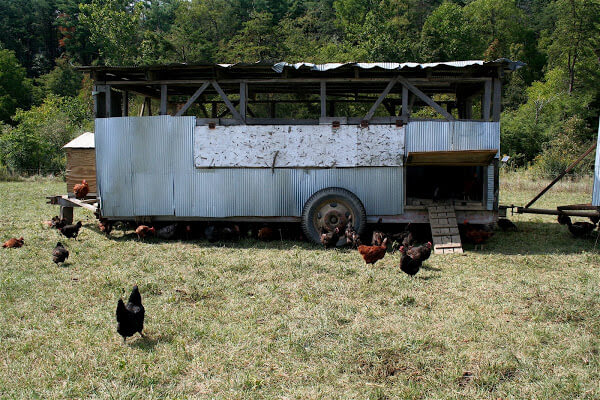
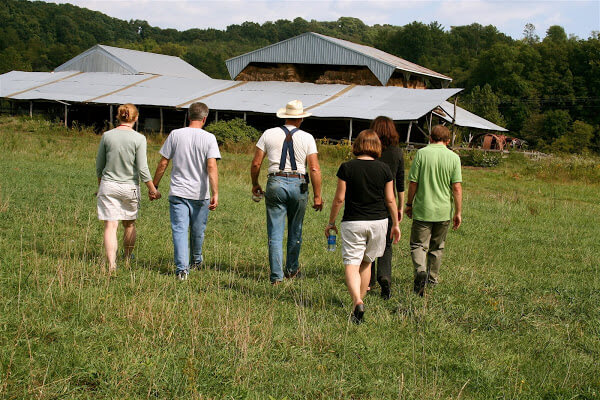
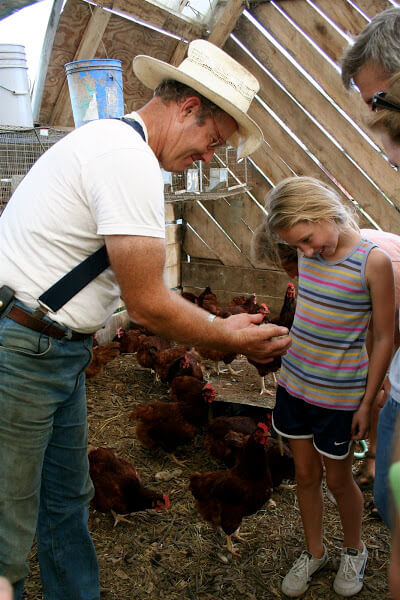



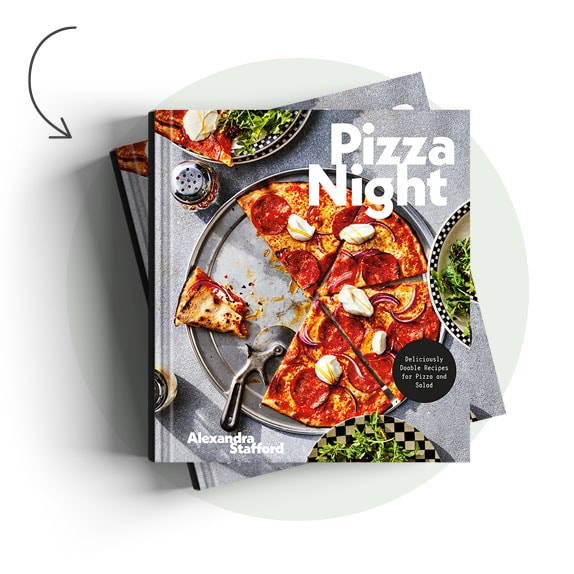
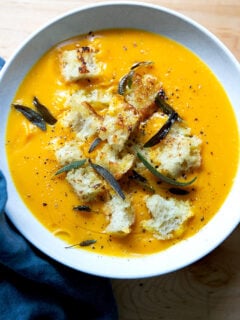
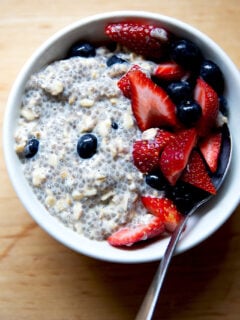
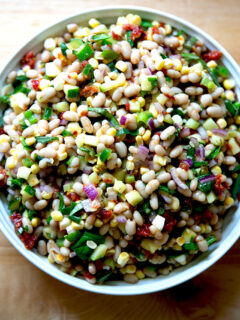
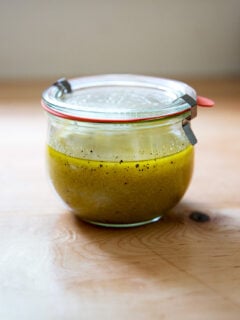
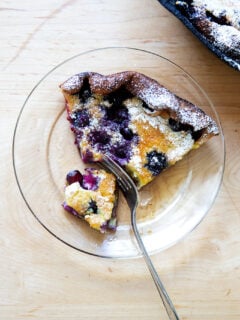
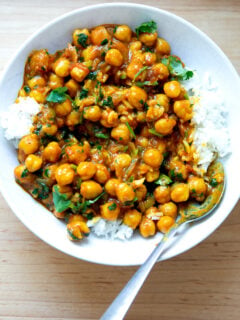

5 Comments on “Joel Salatin and Polyface Farm”
Dude! When you said you were going to be out of town this past weekend, you didn’t say you were going to visit Polyface! That must’ve been awesome! This entry makes me want to re-read the relevant parts of Omnivore’s Dilemma with your picture of the Eggmobile in hand. 🙂
I’m also glad to see a picture of this husband of yours…
I know, it was kind of a last minute thing. It was awesome! we’ll have to catch up at the market tomorrow. I’m glad you like the pics.
i can’t wait for you to own pigs and cows.
Bates, I can’t wait either. When Bug visits, he can play with the little piglets. They were about the same size. I think he would really like the farm.
Extremely jealous. Thank you for sharing and stopping by at Headhouse to let me know you actually went to polyface.